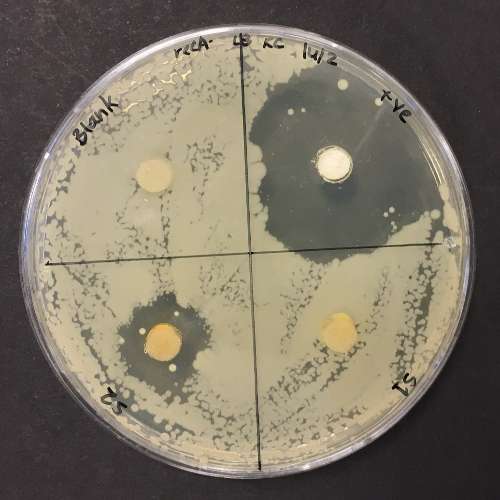Dr Simon Moore, Lecturer at the School of Biosciences, is awarded Wellcome Trust funding to research how to unlock toxic antitumour drugs from soil bacteria.
Over 70% of antibiotics and two-thirds of anticancer drugs are derived or informed from natural products found in plants, fungi and bacteria. However, it is estimated that over 99% of natural products have yet to be discovered. These unknown molecules are a huge valuable resource from which many new important biopharmaceuticals will ultimately be found.
The Moore Lab has recently received funding from the Wellcome Trust to study the biosynthesis of duocarmycin, a potential anti-cancer drug produced by Streptomyces bacteria isolated from soil samples taken from Mount Fuji in the 1970s. Synthetic derivatives of this drug are in phase I clinical trials for the treatment of solid-phase tumours. Duocarmycin is highly toxic and kills both microbes and cancer cells by irreversibly binding to their DNA. We have a major gap in our understanding of how Streptomyces produces this powerful antibiotic and also how the bacterium manages to protect itself from the molecule’s toxicity. The aim of the new research is to answer both these questions and also to search for new undiscovered duocarmycin-like toxins that could lead to the development of new cancer therapies in the future.
The project will be in joint collaboration with the lab of Professor Martin Michaelis.

